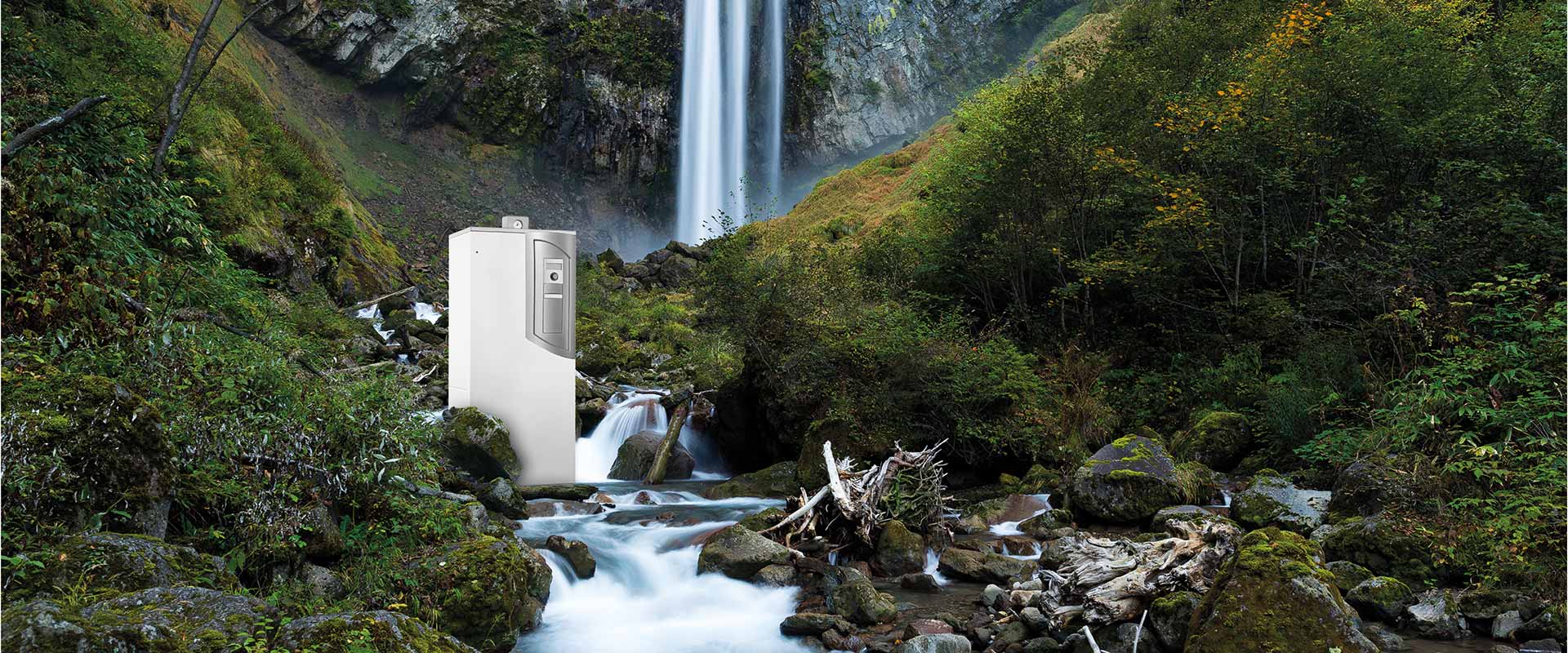What is a water/water heat pump?
A water/water heat pump draws its energy from groundwater. Seasonal fluctuations as with the heat source air are almost not existent. This makes groundwater an ideal energy source for a heat pump. Compared to other types of heat pumps, the water/water heat pump is one of the most effective systems with the highest annual performance figures.
The most efficient type of heat pump
Water - the ideal energy source
Groundwater has a constant temperature throughout the year. Depending on the region, season and depth, it is around 7 - 12 degrees. Seasonal fluctuations, as with the temperature of the air or the ground, are almost non-existent. This makes groundwater an ideal energy source for a heat pump.
using renewable energies even more efficiently
How does a water/water heat pump work?
To use groundwater, two wells must be drilled on your property: a production well and an extraction well. Warm groundwater is extracted from the production well and pumped to the heat pump's heat exchanger. There, the heat is extracted from the extracted groundwater and transferred to the rooms as heating energy. Through the absorption well, the cooled water is returned to the ground completely unpolluted. Now the heat pump cycle starts again.
Requirements for a water/water heat pump
In order for groundwater to be used as an energy source for the heat pump, the quality of the water at your home location must meet certain requirements. In addition, the groundwater must be available in sufficient quantity as well as have the correct flow direction. To ensure whether a water/water heat pump is suitable for your property, a groundwater analysis is performed in advance. The application must be submitted to and approved by the local water authority.
Advantages of a water/water heat pump
The water/water heat pump is the most efficient type of heat pump due to its energy source. A particularly high COP ensures the best efficiencies as well as low operating costs. In combination with green electricity, the operation of the heat pump is almost emission-free.
Cooling with a water/water heat pump
In summer, the water/water heat pump quickly becomes a cost-effective and environmentally friendly air conditioning system. Passive cooling allows the low temperatures of the groundwater to be used for pleasant cooling of the rooms in summer. Excess heat is extracted from the living spaces and drawn off into the ground. A heat exchanger transfers the low temperatures of the groundwater to the heating system. The existing heating surfaces, such as floor, wall or ceiling heating systems, then act as cooling surfaces.
The best thing about passive cooling with a water/water heat pump is that the cooling can be gently tempered, and without any annoying drafts.


